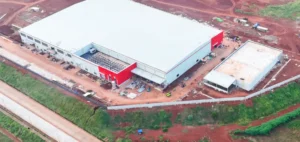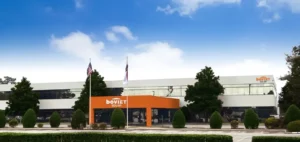The Board of Directors of the African Development Bank Group (AfDB) has approved a €26.5mn ($28.57mn) financing package for the construction of a 62-megawatt-peak (MWp) solar photovoltaic power plant in Sokodé, in central Togo. The funding includes a direct €18.5mn ($19.94mn) loan from the AfDB and a concessional €8mn ($8.63mn) loan from the Sustainable Energy Fund for Africa (SEFA), managed by the pan-African institution.
A €61mn public-private partnership
The project, with a total cost of €61mn ($65.83mn), also receives co-financing from Proparco, a subsidiary of the French Development Agency focused on supporting the private sector in emerging markets. French utility Électricité de France (EDF) is responsible for designing, building, and operating the plant, which will be connected to an 11-kilometre electricity transmission line.
Once operational, the solar plant is expected to generate 87 gigawatt-hours (GWh) of electricity annually, helping to reduce the national energy deficit. The facility will also cut annual carbon dioxide (CO₂) emissions by approximately 13,600 tonnes, according to figures provided by the AfDB.
Target: 200 MWp of renewable energy by 2030
This project is part of Togo’s national energy strategy, which aims to install 200 MWp of renewable energy capacity by 2030. It is intended to reduce reliance on thermal power generation, improve supply reliability, and lower production costs.
Kevin Kariuki, Vice President for Power, Energy, Climate and Green Growth at the African Development Bank Group, stated that the facility “supports Togo’s efforts to expand access to energy through renewables, stimulates local economic growth, and strengthens the country’s energy security.”
A catalyst for private investment
SEFA’s support for the Sokodé solar power project also aims to demonstrate the technical and financial viability of renewable energy in Africa. The project aligns with Togo’s M300 Energy Compact, which seeks to reduce electricity production costs through competitive tenders and attract private sector participation.
The project is further integrated into the African Development Bank Group’s “Light Up and Power Africa” High 5 priority, which promotes sustainable energy solutions across the continent. The initiative aims to bridge electricity access gaps while drawing foreign capital into African energy markets.






















